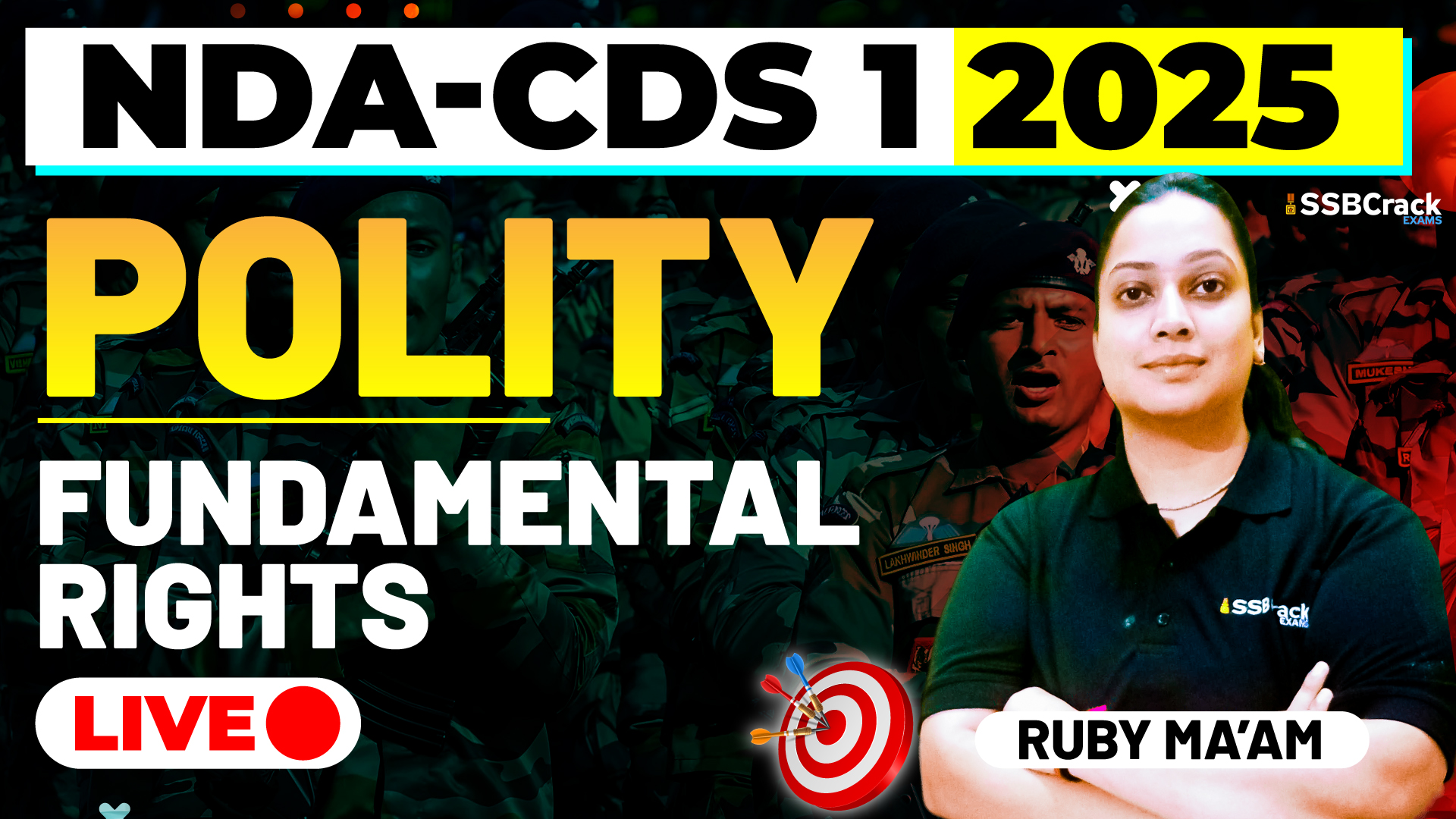Aspiring to join the prestigious National Defence Academy (NDA) or clear the Combined Defence Services (CDS) examination is a noble goal. Both exams not only test your physical abilities and leadership qualities but also evaluate your knowledge of Indian polity, including the Fundamental Rights enshrined in the Indian Constitution. These rights are crucial not just for the exam but also for understanding the values you will defend as future officers of the Indian Armed Forces.
1. Fundamental Rights in the Syllabus
For both NDA and CDS aspirants, understanding Fundamental Rights is a key aspect of the General Knowledge section. Questions related to the Indian Constitution, particularly the Fundamental Rights under Part III, are frequently asked. Having a clear grasp of these rights can help you score well and strengthen your understanding of the duties and responsibilities of an Indian citizen.
Fundamental Rights include:
- Right to Equality (Articles 14-18): These articles focus on the prohibition of discrimination, equality before the law, and the abolition of titles.
- Right to Freedom (Articles 19-22): These include freedoms like speech, expression, movement, and assembly.
- Right Against Exploitation (Articles 23-24): Prohibits human trafficking, child labor, and forced labor.
- Right to Freedom of Religion (Articles 25-28): Ensures freedom to practice, propagate, and manage religious affairs.
- Cultural and Educational Rights (Articles 29-30): Safeguard the rights of minorities to preserve their culture and establish educational institutions.
- Right to Constitutional Remedies (Article 32): Known as the “heart and soul” of the Constitution, it allows citizens to move the court if their rights are violated.
2. Conceptual Understanding for the Exam
While preparing for the NDA or CDS exams, it’s crucial to not just memorize these rights but also understand the principles behind them. For instance:
- Right to Equality is about ensuring that every citizen is treated equally under the law, irrespective of caste, religion, or gender. Knowing how this right applies in real-life scenarios can help you answer application-based questions.
- Right to Freedom is central to understanding the democratic values of India. Questions might focus on the limitations of these freedoms (e.g., restrictions during a state of emergency or reasonable restrictions on free speech).
3. Current Affairs and Fundamental Rights
Current affairs often involve debates around Fundamental Rights. As a future officer, you need to be aware of situations where these rights are upheld or violated. For instance:
- Right to Privacy was declared a fundamental right by the Supreme Court in 2017 under Article 21. Keeping updated on such developments helps in answering dynamic questions in the General Knowledge section.
- Freedom of Speech and its restrictions (especially in the context of social media, defamation cases, and national security) are topics that often appear in both the written exam and interview stages.
4. Role of Fundamental Rights in the Armed Forces
As an NDA or CDS aspirant, you will soon be part of the Armed Forces, whose duty is to uphold the Constitution, including the Fundamental Rights. While the rights of armed forces personnel may be subject to certain restrictions, understanding these rights is critical to your role as a defender of the nation. For example:
- Right to Equality ensures fair treatment within the military ranks.
- Freedom of Speech is limited for servicemen for operational security reasons, but officers must still be mindful of legal constraints when expressing opinions.
5. Incorporating Fundamental Rights into Ethics and Leadership
As an officer in the Armed Forces, you will be a leader responsible for not only safeguarding the nation’s borders but also embodying the values enshrined in the Constitution. Understanding and respecting Fundamental Rights will guide your decisions in maintaining the rule of law, ensuring justice, and treating your subordinates and civilians with dignity.
Conclusion
For NDA and CDS aspirants, Fundamental Rights are more than just a section in your syllabus. They form the foundation of India’s democracy and are essential for understanding the values you will protect as an officer. By studying these rights thoroughly, not only will you perform well in the exam, but you will also develop a deeper appreciation of the Constitution, which will shape your career in the armed forces.







